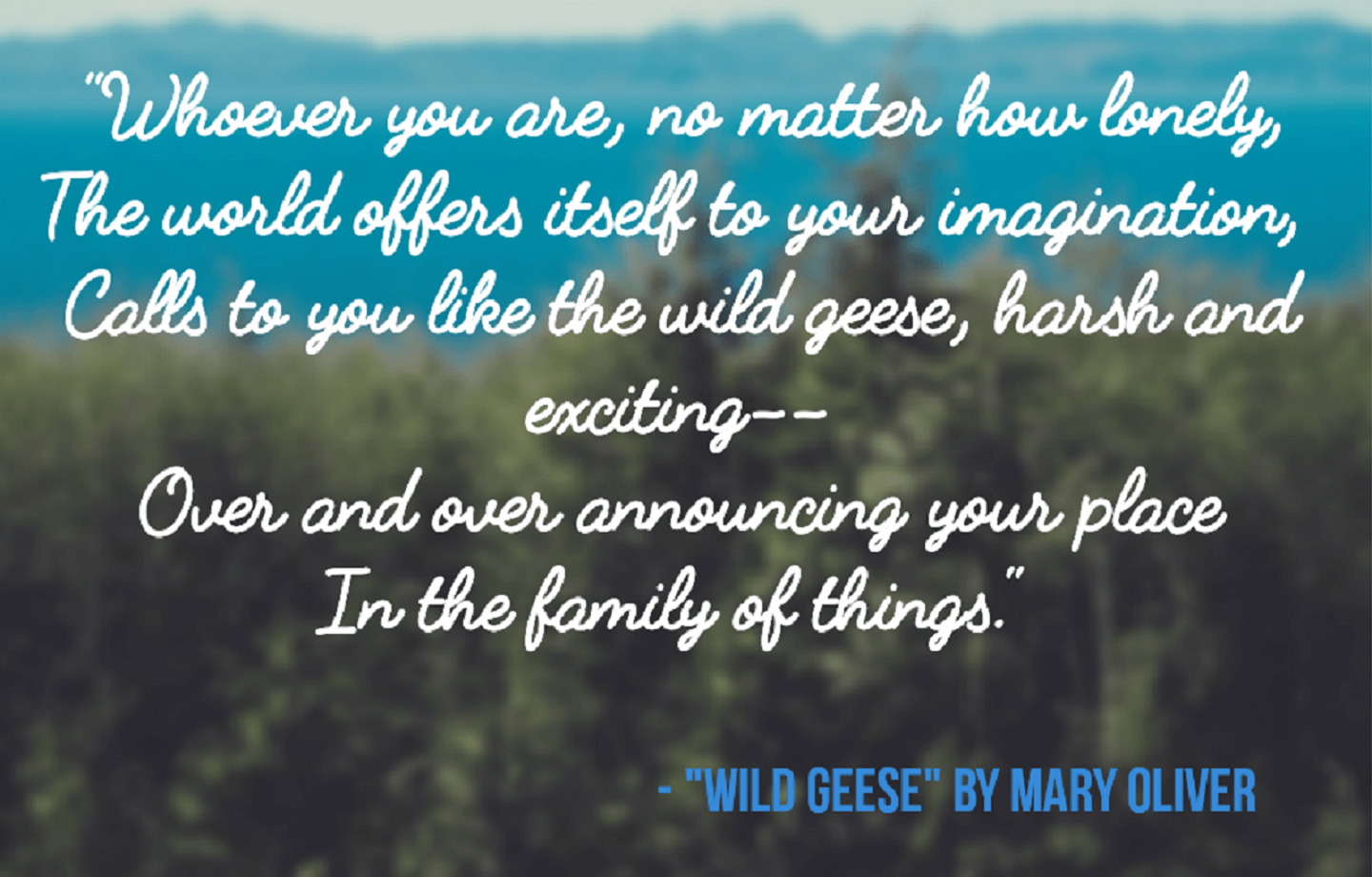
- This event has passed.
Lessons from the Geese
Sunday, November 27 @ 10:30 am - 11:30 am


Change is in the air. It is a time to be mindful and intentional about our deepest desires and concerns for ourselves, our families, our communities, and our planet. It is also a time to gather strength and nourishment for the journeys ahead. Rev. Dr. María Cristina Vlassidis Burgoa will be preaching.
How to Attend
We require masks in all buildings. We encourage all in person participants to be vaccinated. Read more about our In Person Guidelines here.
• To virtually attend, please Zoom in using room number 989 3107 9078, passcode: chalice.
• To phone into the service, call 669-900-6833, Meeting ID: 989 3107 9078.
For those joining, please mute as soon as you enter the room, so everyone can hear. Please note, the services will be recorded, but at this time, there are no plans to share the recording.
More Information
There are no Religious Education classes this week. For more about our classes, click here!
If you don’t have a chalice, but want to light one, check out our Making a Chalice at Home page.
Both virtual and in person services are followed by coffee hour.
Children’s Story
Sermon Audio
Lessons from the Geese
Sermon Text
Have you noticed? Change is in the air. The leaves on the trees have turned and every day the wind and the rain create a beautiful tapestry … light is less and the nights grow longer and longer. This great turning, this sacred darkness is a time of gestation, a time for healing, to contemplate nature and consider our place among creation. It is a time of preparation, of reflection about the great spiral that is this vast universe whose force brings us together. It is a time to be mindful and intentional about our deepest desires and concerns for ourselves, for our families, for our communities, for our planet. This is an opportunity to observe. In this liminal time, we are invited to embrace the darkness as nourishment, to reflect and prepare for the journeys ahead.
This morning I am thinking about the wild geese and how even when I can’t see them, I hear them honking overhead, announcing the great turning of the seasons, and reminding me of migrations great and small.
When I hear the wild geese, they remind me that for some of us, moving towards the light energizes us. Creating rituals and festivals that beckon and celebrate the return of the light shifts our focus away from the darkness. But what if we celebrated darkness, allowed ourselves to embrace it and be embraced by it? What if the point is to give ourselves permission to rest, to reflect, to heal?
Might we need a new narrative about the darkness as divine? A narrative of resistance and resiliency that is about a collective spirit, a cultural shift where rest and reflection is necessary for healing, for growth. A counter narrative to self-sacrifice, burn-out, incessant movement, and busy work that keeps us from taking stock, from looking back, from reaching out and within, from resting when we are tired.
Many years ago, while dropping off donations at a thrift store before my next migration, I found a postcard with the lessons from the geese. It is divided into two columns. On the left are the facts and on the right, the lessons. I’d like to share it with you:
Fact: as each goose flaps its wings, it creates an uplift for the birds that follow. By flying in a V formation, the whole flock adds 71% greater flying range than if each bird flew alone.
Lesson: People who share a common direction and sense of community can get where they are going, maybe not quicker, but definitely with more joy and feeling connected because they are traveling on the energy of one another.
Fact: when a goose falls out of formation, it suddenly feels the drag and resistance of flying alone. By moving back into formation it can take advantage of the lifting power of the bird immediately in front of it.
Lesson: If we have as much sense as a goose, we stay in formation with those headed where we want to go. We are willing to accept their help and give our help to others.
Fact: When the lead goose tires, it rotates back into the formation and another goose flies to the point position.
Lesson: It is necessary to take turns and share our gifts and skills as community leaders. We need one another.
Fact: When a goose gets sick, or wounded, two geese drop out of formation and follow it down to help and protect it. They stay with it until it’s able to fly again. Then they launch out with a new formation and catch up with the flock.
Lesson: If we have as much compassion as the geese, we will support each other during difficult times as well as when we are strong.
Fact: the geese honk to encourage those in front to keep up their speed.
Lesson: HONK! HONK! HONK! Let’s make sure our words encourage and uplift each other. There is much power in being each other’s cheerleaders. Especially when someone is new in a committee or an introvert stepping up to a leadership position for the first time.
When I found this little treasure, it spoke to me. It made me think about shared ministry and the work of committees and ministry teams. How we focus on doing, many times rushing through agenda items and decision making, designing new programs, scheduling more meetings, and seldom intentionally slowing down, to look back, take stock, reflect, and replenish our energy and renew our sense of purpose.
This winter we have an opportunity to include embracing this liminal time as a spiritual practice.
Shannon Harper, Co-Director of the UUA’s Lifespan Faith Engagement Office has developed a Liminal Action Plan. She writes that in the midst of lingering pandemic anxiety and uncertainty about the future, we want to create change, we want to see movement, and when progress is slow, we feel frustrated. She reminds us of the book Oh! The Places You’ll Go by Dr. Seuss and says that many congregations are in this place in the middle, the waiting place.
“for people just waiting.
Waiting for a train to go
Or a bus to come, or a plane to go
Or the mail to come, or the rain to go
Or the phone to ring, or the snow to snow
Or waiting around for a Yes or No
Or waiting for their hair to grow.
Everyone is just waiting.
“First we were waiting for a vaccine. Now we’re waiting to see how effective it will be in the long term…Waiting for life to be normal again. . . Of course our congregations and communities are looking to start up in a more “normal” way, and the words “strategic plan” and “visioning” are being whispered.
We’re anxious to get “back to normal”, to start our programs back and gain ground that we’ve lost. But we are changed, our communities are changed, the same formulas and landscaping we used prior to the pandemic are not necessarily going to work now. It’s going to take time, patience and experimenting to learn how to create these new gardens we’re dreaming about.
But that doesn’t mean there isn’t important work to do in the liminal. Enter the Liminal Action Plan. A LAP is something you do before the main event, to warm up, to keep moving, to not become stagnant. It only requires some of your energy, because if you give it your all, you’ll be too tired and burnt out when the time comes to landscape the main garden. During a LAP it’s important to recover and mentally prepare yourself for the job ahead. It’s also a time to visualize what you want to create and prepare yourself by learning new skills, dusting off old ones and practice, practice, practice.
A good Liminal Action Plan is:
Temporary – be clear about what is only a stop gap measure and what, with success and interest might be transplanted into the new landscape. Being temporary allows us to experi-fail and learn.
Trauma and grief informed – at every shift of the way remember we’re still in the midst of a traumatic experience and people interpret and deal with trauma and grief in different ways. Remember that paid staff in a community are just as affected by pandemic trauma and grief as members and volunteers.
Responsive – ask, listen, let go of assumptions of what you think people need or want. Don’t do work no one asked for just because you think you should.
Relational – value people’s relationships and how they show up, over protocol, schedules and historical systems.
Playful – play is an underestimated part of healing, recovery and relationship building. Find ways to play. It’s okay to do activities or events whose only purpose is to be fun and lighthearted.
Efficient – I don’t mean succinct, I mean energy is not wasted and a little bit of effort is made to go a long way. Volunteer and staff time should be time spent for a purpose (even if that purpose is play) not performance.
Shared – ideate together, share work, do not expect the same volunteers or staff who have been holding it all together to keep doing so; ask for help, offer help, everyone can pitch in; always offer gratitude.
Forgiving – things will not always work out the way we imagine, we will not always show up the way we want, and yet we can be gentle with ourselves and each other, we can adapt when needed and we can always keep looking for new possibilities.
What if we saw this time between active crisis mode and whatever landscape our congregational life will become, as a gift? As a time to slow down, assess, process our trauma and grief, and do the necessary healing to be the healthy, vibrant and life affirming beacons of Unitarian Universalism we envision our congregations to be? What if the theology of the darkness divine and this liminal time were about connection, play, healing, and forgiveness?
Here are some prompts for reflection and introspection within your ministry teams and as part of your own spiritual practices: What did you do when the pandemic came? What did you salvage, what did you have to let go of? How did you offer help? Where did you take refuge yourself? What new skills did you learn?
How are you making space for grief, healing, and introspection? What are you noticing as you move through this time? What feels “muddy and rough*”? This is a time to name griefs, emotions, anxieties, worries as well as the positive noticings.
In the future our garden [congregation] won’t look exactly like the one before because we are changed. What do you want your community to look like in the future? What old and new values/aspects are important to include in this new design? Who do you want to visit this garden [congregation] or make a home here? Who will share in the care and upkeep of it? Are there other gardens [congregations] you want to connect to? Are there skills, materials, or tools that need to be acquired in order to make this vision a reality?
As we journey [together], on our way to what we can only imagine, May we be gentle with ourselves and one another, And may we embrace darkness and liminality as an invitation to dream and imagine what could be. May we heed the lessons from the geese as we take turns moving into leadership positions, allowing those who are tired to rest and be propelled forward by our shared energy, to stop and with a partner, tend to those who are hurt, and stay with them until they feel better, can renew energies and join us again, and may we honk as often as we can to encourage each other and express our gratitude and love for one another and this our beloved community. Amen. Ashe. Blessed Be.


